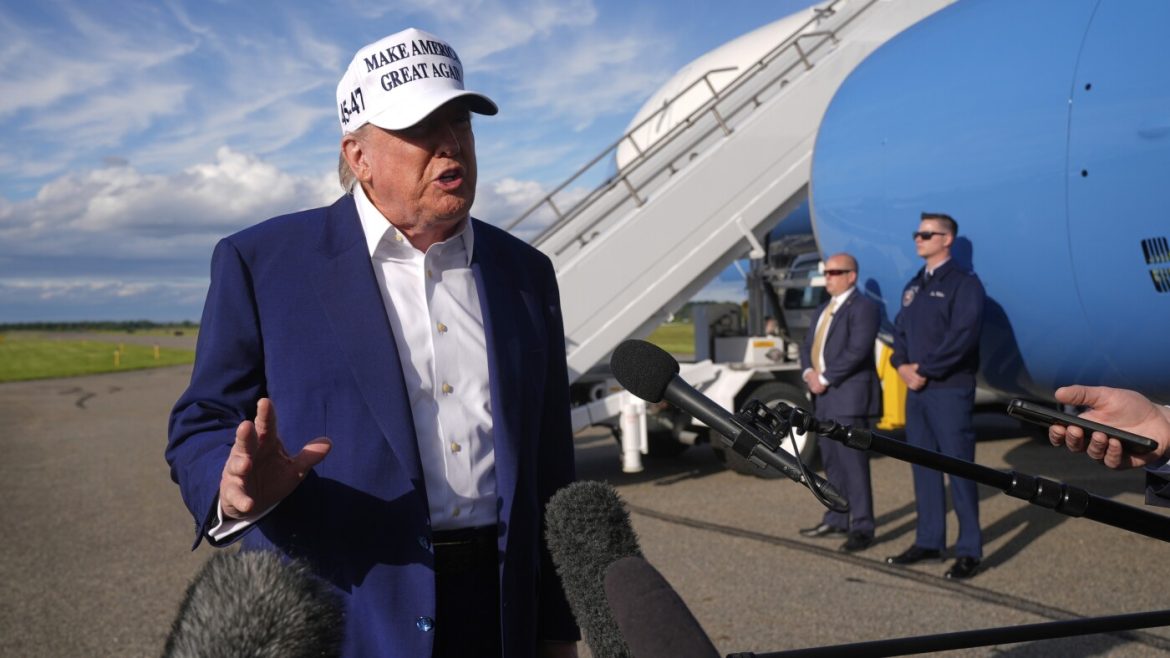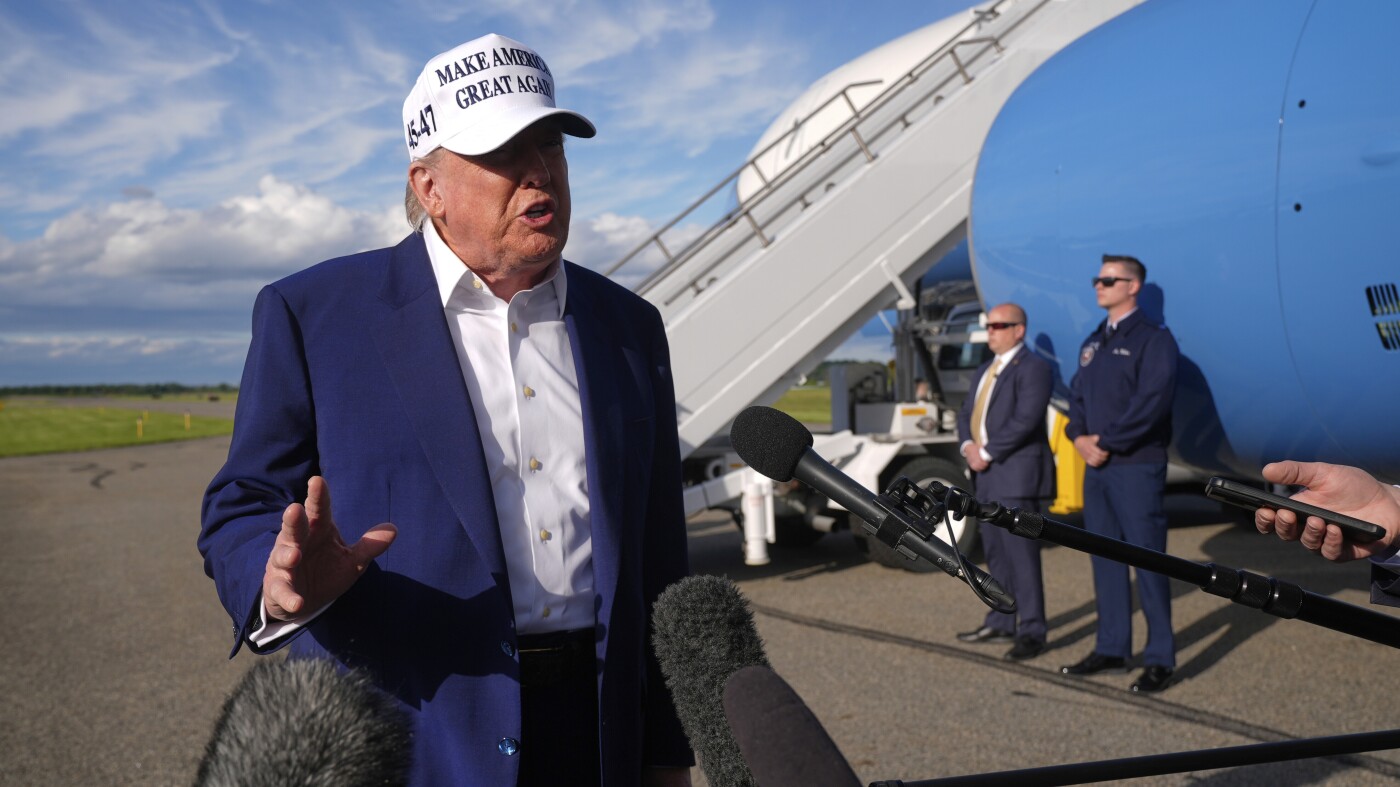Trump’s Characterization of Putin Amid Russia’s Largest Drone Attack on Ukraine
Recent events in the Russia-Ukraine conflict have drawn significant international attention, especially following Russia’s largest drone and missile assault on Ukraine since the war began. US President Donald Trump has emerged with unusually direct language, calling Russian President Vladimir Putin “absolutely crazy” and sharply criticizing the escalation. Understanding the nuances of Trump’s comments, their context, and their implications requires deeper exploration.
—
Background: The Largest Russian Drone Assault in the Ukraine War
On the weekend preceding Trump’s remarks, Russia launched a devastating aerial campaign targeting multiple Ukrainian cities, including the capital Kyiv. Ukrainian officials reported record numbers of drones and missiles unleashed in attacks that resulted in civilian casualties, including children, and substantial destruction to infrastructure. The scale of the strikes marked a significant escalation and fueled fears that the conflict was entering a more dangerous phase.
Amid international efforts to negotiate a ceasefire, these attacks appeared to dash hopes for a diplomatic breakthrough. The intensity and targeting of urban centers marked a notable shift in Russian tactics, apparently aimed at exerting maximum pressure on Ukrainian morale and resilience.
—
Trump’s Critique of Putin: A Notable Shift in Tone
Donald Trump’s response was striking for its bluntness and rarity. Despite a history of relatively cordial references to Putin, Trump abruptly described the Russian president as having “gone absolutely crazy.” He condemned Putin for “needlessly killing a lot of people”, emphasizing the targeting of civilians. Trump stated on social media and during remarks in New Jersey that Putin’s actions—sending rockets into cities—were unacceptable and alarming.
This frank denunciation came as Trump revealed that he was considering new sanctions on Russia in reaction to the attacks, signaling a willingness to escalate pressure diplomatically and economically. Notably, Trump reiterated his past assertions that Putin wants “all of Ukraine,” suggesting that this ambition might be proving true, yet warning of potential consequences, including the “downfall” of Russia if full conquest is attempted.
—
Contradictions and Continuity in Trump’s Approach
While sharply criticizing Putin’s current behavior, Trump maintained that he “has always had a very good relationship” with the Russian leader, underscoring a complex and often contradictory stance. Trump has previously emphasized dialogue with Putin, including lengthy phone calls and attempts to broker ceasefire talks between Russia and Ukraine.
Trump’s comments simultaneously expressed frustration and alarm, but also a strategic posture: by acknowledging Putin’s erratic behavior, he sought to justify increased sanctions and diplomatic pressure, projecting himself as playing a role in preventing further destruction.
At the same time, Trump was critical toward Ukrainian President Volodymyr Zelenskiy, reflecting a consistent skepticism about Kyiv’s leadership throughout the conflict. This illustrates the delicate balance Trump attempts between condemning Russian aggression and managing perceptions of US foreign policy influence.
—
The Kremlin’s Response and the Broader Geopolitical Context
Russian officials swiftly pushed back against Trump’s depiction of Putin as “absolutely crazy,” dismissing the comments as emotional outbursts and attributing them to Trump’s frustration. The Kremlin portrayed the US president’s statements as evidence of “emotional overload,” reinforcing its narrative of Western hostility.
Within this fraught geopolitical environment, Trump’s comments added an unexpected layer of discourse. They caught attention not only for their bluntness but also as a departure from the usual diplomatic circumspection typically expected from sitting or former US presidents discussing adversaries.
—
Impact and Implications
Trump’s public labeling of Putin as “absolutely crazy” amid such a serious military escalation has several significant implications:
– Diplomatic Signaling: The comments may indicate a shift toward stronger punitive measures, including heightened sanctions, signaling to both Russia and allies that continued aggression carries increased costs.
– Public Discourse: By framing Putin’s actions in starkly negative psychological terms, Trump shapes public perception, potentially influencing domestic and international opinion about the conflict and Russian leadership.
– Negotiation Dynamics: Trump’s assertion that ceasefire talks are imminent contrasts with the reality of intensified attacks, highlighting difficulties in achieving peace and the fragility of the negotiation process.
– US-Russia Relations: Such public rebukes complicate diplomatic relations and underscore the unpredictable nature of personal diplomacy influenced by individual leaders’ personalities and statements.
—
Conclusion: A Stark Warning Amid Escalating Violence
Donald Trump’s condemnation of Vladimir Putin as “absolutely crazy” in response to Russia’s largest drone and missile strikes on Ukraine encapsulates a moment of heightened tension marked by unprecedented destruction and uncertain diplomacy. His candid language reflects growing frustration with Putin’s relentless assault on Ukrainian cities and civilians, breaking from previous more restrained tones.
This development underscores the escalating stakes of the Ukraine conflict, where strategic objectives collide with humanitarian crises and global diplomatic efforts hang in the balance. Trump’s remarks serve as a stark warning of the potential consequences if Russia attempts to conquer all of Ukraine—hinting at the possibility of Russia’s eventual downfall if hostilities persist.
As the war continues and peace talks remain elusive, the international community watches closely the interplay of military actions, political rhetoric, and leadership dynamics that will shape the conflict’s trajectory in the crucial months ahead.


